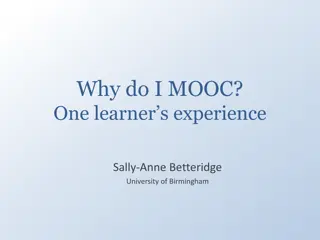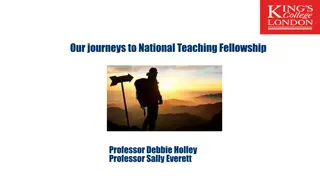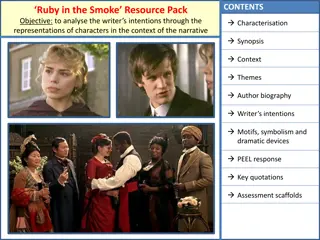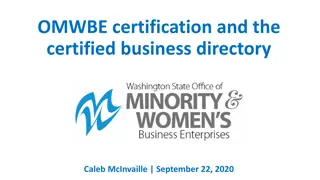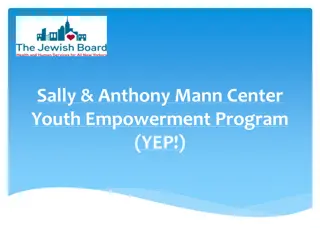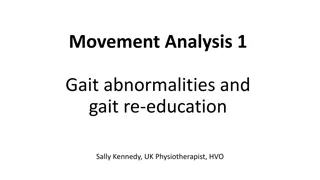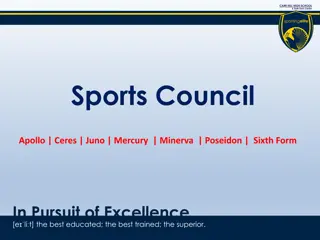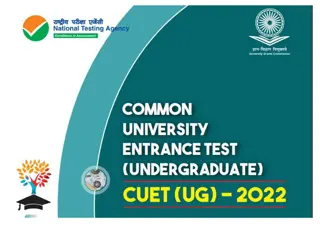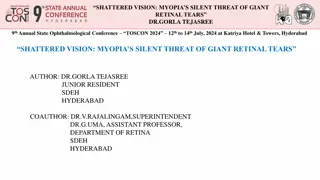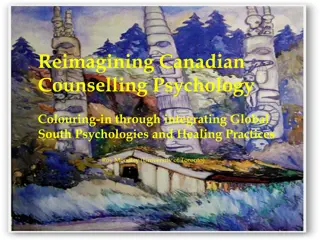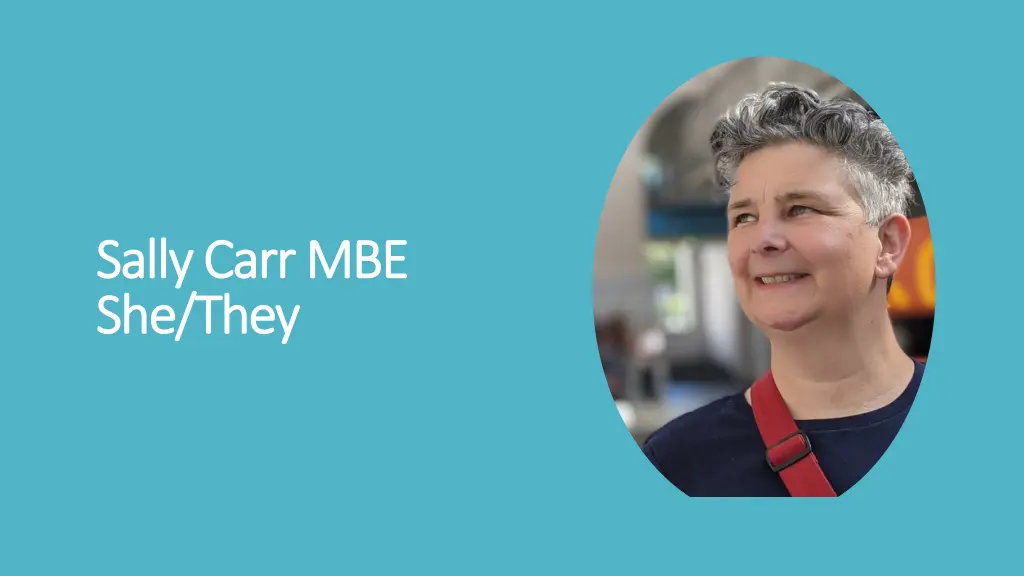
Understanding GRT Communities: Diverse Histories and Realities
Explore the rich tapestry of Gypsy, Romany, and Traveller (GRT) communities, encompassing various ethnic groups with distinct cultures and beliefs, facing unique challenges of discrimination and marginalization. Learn about anti-GRT racism, the complexity of identities, and the fight against anti-Gypsyism in Europe.
Download Presentation

Please find below an Image/Link to download the presentation.
The content on the website is provided AS IS for your information and personal use only. It may not be sold, licensed, or shared on other websites without obtaining consent from the author. If you encounter any issues during the download, it is possible that the publisher has removed the file from their server.
You are allowed to download the files provided on this website for personal or commercial use, subject to the condition that they are used lawfully. All files are the property of their respective owners.
The content on the website is provided AS IS for your information and personal use only. It may not be sold, licensed, or shared on other websites without obtaining consent from the author.
E N D
Presentation Transcript
Sally Carr MBE Sally Carr MBE She/They She/They
The term Gypsies and Travellers do not constitute a single, homogenous group, but encompasses a range of groups with different histories, cultures and beliefs including: Romany Gypsies, Welsh Gypsies, Scottish Gypsy Travellers and Irish Travellers. GRT+ Terminology http://researchbriefings.files.parliament.uk/documents/CBP-8083/CBP-8083.pdf Showmen/Show people- Families with a tradition of living and working in travelling fairs are usually described as Showmen. Circus People can be regarded as similar to Showmen, although the trades are often different Irish Travellers (Pavee) - whilst having much in common in terms of lifestyle and to some extent shared history with Romany Gypsy and Scottish Gypsy Traveller people, have different ethnic roots and do not originate from India. Scottish Gypsy Traveller- Travelling people in Scotland, whilst sharing much in common with other Travelling groups, have recently been recognised as a separate ethnic group in Scotland. Bargees -are people who live on the canals in the UK. Some Bargee families can trace their families back many generations. Some families are linked to other Travelling groups such as Romany Gypsies, and some are less ethnically connected, having taken to the canals in more recent decades. Gypsies- The origin of Gypsies -groups of people who left India over a thousand years ago and dispersed across the globe. Along the way they were defined by others as being Egyptian and this has become shortened to Gypsy. Whilst Gypsy is often used in the UK, for some people it is a term that is embraced and for other people it is a term of insult and discrimination. For many Roma people in mainland Europe Gypsy is a high discriminatory term New Travellers- This term is used to describe people who live a travelling lifestyle but who are not ethnically defined as Gypsies, Scottish Gypsy Travellers or Irish Travellers Romany Gypsies- are recognised as an ethnic minority group in UK law (Equalities Act 2010).
Romani and Traveller communities are the most disadvantaged and least engaged with minority ethnic groups, in the complex ethnic ,and cultural ,mosaic of modern European identities ; as they occupy a space at the intersection of racial bias, class conflict, ethnic discrimination, economic marginalisation and social exclusion , that is unique amongst minority ethnic groups Isaac Blake Romany Arts and Culture Centre.
Content warning- Descriptions of violence and harm
Anti-Gypsyism- The European Commission against Racism and Intolerance (ECRI), of the Council of Europe defines anti-Gypsyism as: specific form of racism, an ideology founded on racial superiority, a form of dehumanisation and institutional racism nurtured by historical discrimination, which is expressed, among others, by violence, hate speech, exploitation, stigmatisation and the most blatant kind of discrimination .
Slavery: For sale, a prime lot of Gypsy slaves, to be sold by auction at the Monastery of St.Elias, 8 May 1852, consisting of 18 men, 10 boys, 7 women and 3 girls: in fine condition. Wallachia. From Ian Hancock, The Pariah Syndrome, 1987. The persecution of mobile people : Historical hate and racism o1349 Ordinance of Labourers, which ruled that those deemed to be vagrants could be whipped or branded with hot irons. oLaws passed in the 16th century decreed that rogues , vagabonds and other masterless men could have their ears sliced in two or bored with a hot poker. If they still failed to return to their own parish (regardless of whether they had one), they could be hanged. oA 1554statute enabled anyone calling themselves Aegyptians (Gypsies) to be summarily killed.
The Gypsy holocaust The Porrajmos, or Porajmos, which translates to 'the Devouring', is the term used to describe the Nazi genocide of Europe s Roma and Sinti population. Historians estimate that between 200,000 and 500,000 Roma and Sinti people were murdered by the Nazis and their collaborators. Many more were imprisoned, used as forced labour or subject to forced sterilisation and medical experimentation.
Forced sterilization: o In Sweden carried out forced sterilizations on 60,000 Romani women, in order to cleanse society of what they regarded as inferior racial types. The operations began in 1935 and ended only in 1976- 41 years oThousands of Roma women were forcibly sterilized in Slovakia for decades, a Contemporary Contemporary practice that continued until 2004- only 18 years ago Blonde haired children o In 2013 the cases of the blonde haired, blue eyed children found living with hate and racism hate and racism Roma families in Greece and Ireland respectfully dredged up a swathe of negative stereotypes and confirmed Roma s status as the most vilified and persecuted minority group in Europe. After state authorities in Greece and Ireland had taken the children into care, the o accusations of child abduction (for welfare benefits, exploitation or trafficking) flew thick and fast across social media. The news media, for its part, consistently referred to the blonde haired, blue eyed appearance of the children and references were made to the unsolved cases of missing children Madeleine McCann and Ben Needham, suggesting that Roma might be guilty of abduction in these cases too.
Race Protected characteristic Ethnic origin or ethnic group- An ethnic group is a group with shared history and cultural traditions. The group may also share one or more of the same language, literature, religion or geographical origin. They may be an oppressed group or a minority. Protected ethnic groups include: Irish Travellers and Romany Gypsies Equality Act 2010 Direct or indirect discrimination when someone is put at a disadvantage and treated less favourably because of a protected characteristic, for example race Harassment when bullying or unwanted behaviour is related to a protected characteristic; violated the person's dignity, whether it was intended or not; created an intimidating, hostile, degrading, humiliating or offensive environment for the person, whether it was intended or not Victimisation when someone is treated differently or less favorably because they made or supported a complaint to do with a protected characteristic, or someone thinks they did or might do
Police Crime Courts and Sentencing Act The policing Act deliberately targets Roma, Gypsy and Traveller people, criminalising them if they move and if they stop
Police Crime Courts and Sentencing Act The Act turns trespass from a civil into a criminal offence, allowing the police to arrest people who are Gypsies, Roma and Travellers (GRT) and confiscate their homes, if they stop in places that have not been designated for them. The new bill would enable the police to confiscate people s vehicles (in other words their homes) on the mere suspicion of trespass. When their homes have been seized and their parents arrested, GRT children are likely to be taken into care. Under the proposed law, any adult member of the group can be imprisoned for up to three months. The police bill would deprive GRT+ people of everything: homes, livelihoods, identity, culture, even their families. Given that authorised sites and stopping places cannot accommodate the GRT people who need them, this is a deliberate attack on a vulnerable minority. https://www.theguardian.com/commentisfree/2022/jan/12/uk- authoritarianism-minority-policing-bill-roma-gypsy-traveller
Future work GRT+ people
The PCCS Act 2022 is now law Request to GMEqAl for direct support and advocacy What is Greater Manchester Polices approach to implementing the Act, and how will they ensure that: Suspicion of trespass Is not used to criminalise GRT+ communities They will not confiscate people s vehicles and make them homeless Work to prevent imprisonment of GRT+ individuals How can How can GMEqAL Greater Manchester Police (GMP) , Greater Manchester Police (GMP) , in support of GRT+ lives and hold in support of GRT+ lives and hold dialogue with GMP to explore these dialogue with GMP to explore these questions. questions. GMEqAL engage with engage with Ensure families are kept together and children are not forced into care Work to repeal trespass from a criminal into a civil offence Stopping places Guardian 29th May 2022: Durham churches offer fair-bound Travellers sanctuary on their land Thousands of Roma will soon be making their way to Appleby Horse Fair in Cumbria, but they must contend with new police powers What are the options for more stopping places in GM




